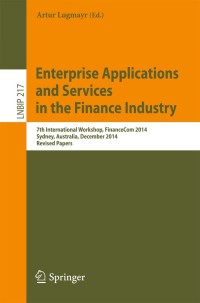Question
NEED THIS ANSWERED FOR MY COMMERCIAL REAL ESTATE FINANCE CLASS ANSWERED! THANK YOU You are to present an investment analysis of a small retail income-producing
NEED THIS ANSWERED FOR MY COMMERCIAL REAL ESTATE FINANCE CLASS ANSWERED! THANK YOU
You are to present an investment analysis of a small retail income-producing property for sale to a potential investor. The asking price for the property is $1,250,000; rents are estimated at $160,000 during the first year and are expected to grow at 2.5 percent per year thereafter. Vacancies and collection losses are expected to be 10 percent of rents. Operating expenses will be 35 percent of effective gross income. A fully amortizing 70 percent loan can be obtained at 8 percent interest for 30 years (total annual payments will be monthly payments * 12). The property is expected to appreciate in value at 3 percent per year and is expected to be owned for five years and then sold.
The investor tells you she would also like to know how tax considerations affect your investment analysis. You determine that the building represents 85 percent of value and would be depreciated over 39 years (use 1/39 per year, except year 1 depreciation is also multiplied by 11.5/12 to adjust for the mid month convention). The potential investor indicates that she is in the 37 percent tax bracket and has enough passive income from other activities so that any passive losses from this activity would not be subject to any passive activity loss limitations. Capital gains from price appreciation will be taxed at 20 percent and depreciation recapture will be taxed at 25 percent. Because the investor works over 750 hours per year in real estate related activities, she is able to avoid the NIIT 3.8 percent surcharge.
a. What is the investors expected after-tax internal rate of return on equity invested (ATIRR)? How does this compare with the before-tax IRR (BTIRR) calculated earlier?
b. What is the effective tax rate and before-tax equivalent yield?
c. How would you evaluate the tax benefits of this investment?
d. Recalculate the ATIRR in part (a) under the assumption that the investor cannot deduct any of the passive losses (they all become suspended) until the property is sold after five years.
Step by Step Solution
There are 3 Steps involved in it
Step: 1

Get Instant Access to Expert-Tailored Solutions
See step-by-step solutions with expert insights and AI powered tools for academic success
Step: 2

Step: 3

Ace Your Homework with AI
Get the answers you need in no time with our AI-driven, step-by-step assistance
Get Started


